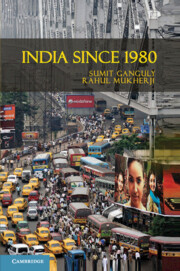6 - India's Trajectory – Promises and Challenges
Published online by Cambridge University Press: 05 June 2012
Summary
India has attempted a bold experiment in democracy and development. There was no dearth of scholars, public intellectuals, and statesman who had argued that democracy could not take hold in a populous, diverse, and poor country. How could democracy be consolidated in the absence of a substantial middle class? Given the many apparent impediments that were strewn along the pathway toward democracy, the dominant strains of social science literature would lead us to conclude that the prospects for the emergence and consolidation of democracy in India were less than propitious.
Despite these hurdles, democracy did emerge in independent India. In considerable measure the roots of India's democracy must be traced to the genius of the nationalist movement. Its leadership managed to successfully draw on British liberal ideas and instill them in the Indian political context. India's principal nationalist leaders, including Mohandas Gandhi, Jawaharlal Nehru, and the architect of India's constitution, Bhimrao Ambedkar, had shared a pluralistic vision of India. Mohandas Gandhi, the principal exponent of Indian nationalism, converted the elitist Congress Party to a mass-based political organization. The practice of democracy within the Congress Party long before independence laid the foundations for the future consolidation of democracy in India. India's first prime minister, Jawaharlal Nehru, was a liberal who nurtured the practice of democracy and respect for minority rights in postindependent India.
- Type
- Chapter
- Information
- India Since 1980 , pp. 167 - 188Publisher: Cambridge University PressPrint publication year: 2011



